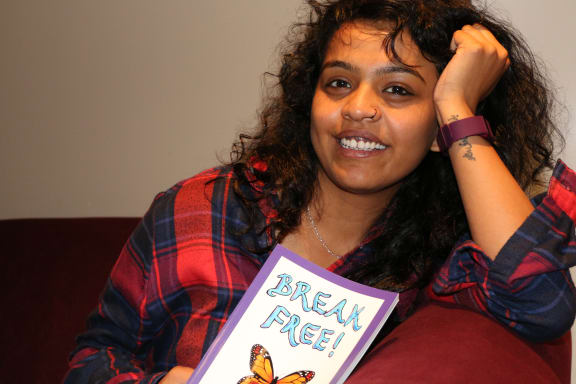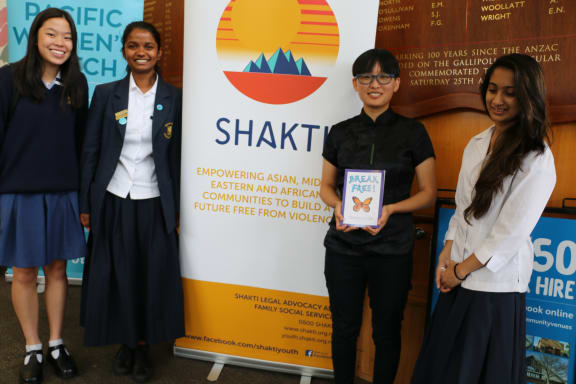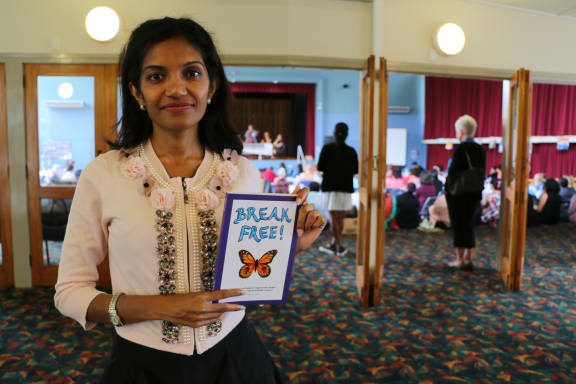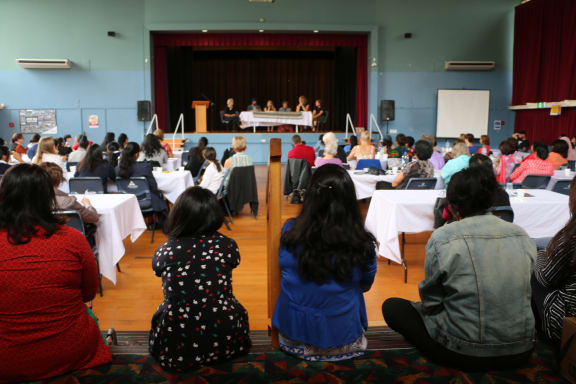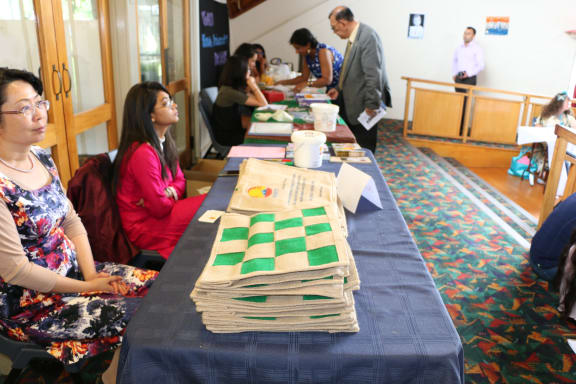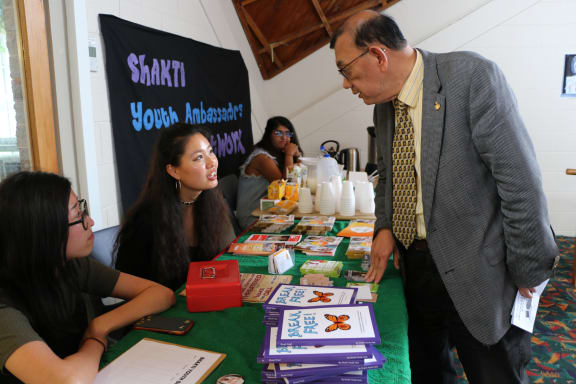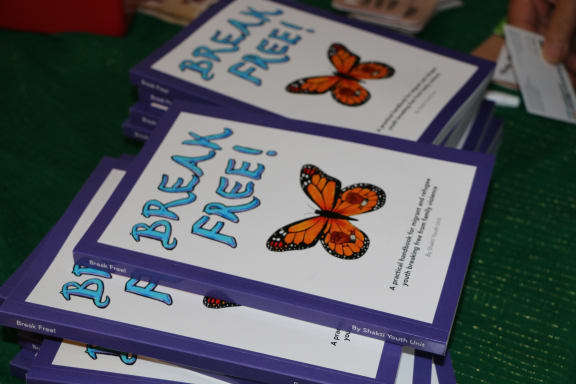For young survivors of domestic violence from Asian, African and Middle Eastern backgrounds struggling to get their lives together, the practical survival of day-to-day life can be daunting.
Imagine living in an isolated environment and then suddenly having to navigate adult things on your own; things like work, banking, education, health, mental health and even future intimate relationships.
Subscribe to Voices for free on iTunes, Spotify, Stitcher or wherever you listen to your podcasts. Now there is a book with simple answers to all these questions.
As part of celebrations for International Woman's Day, a practical handbook for migrant and refugee youth who are breaking free from family violence, Break Free was launched. It's the first of its kind.
Mengzhu Fu is Youth Project Coordinator with Shakti Youth and the driving force behind the publication.
"We were inspired to create this by the young women who have had to leave abusive homes. It was inspired by their strength, pain and power."
Since 1995, Shakti Women's Refuge has provided culturally appropriate refuges, support and advocacy services for women survivors of domestic violence, along with their children.
Shakti's Youth Unit started in 2010, when Mengzhu and a group of young people recognised the need for outreach programmes with high schools to build more awareness about family violence.
Two Masters research projects, conducted in 2013-15 through the University of Auckland, showed Mengzhu that there was a need for greater long-term support for young migrant women trying to rebuild their lives after separation from family violence or partners.
"There's a lot of un-reporting. We know this is the tip of the iceberg. In one high school focus group we had a group of eight young women - only two of them were known to [school] counsellors, but [all] eight were disclosing that they had experienced violence."
"[The book] details stories of youth survivors and provides legal information around access to protection orders, health care, sexual health... A lot of these topics are not taught in high schools. So we hope that having a practical handbook would support young people going through domestic violence to see a way out."
Mehwish’s journey
Mehwish came to Auckland from Pakistan with three of her younger sisters. They immigrated with their father, leaving their mother and younger siblings behind in their country of birth.
Their father was violent and controlling, and Mehwish and her sisters had no sense of self and no rights under his roof.
When Mehwish was 16-years-old, and her sisters 15 and 14, their father announced he was taking them back to Pakistan to be married. These would be forced and under-age marriages.
Instead, the girls found the courage to appeal to their school for help. The school, in turn, contacted Shakti Women's Refuge.
While their father was at work the sisters went home and packed their bags. From there, they were taken to a safe-house.
"So getting out of an abusive household is 90 percent of the work.
"I say 90 percent because the world out there is very scary, and if you are in a position where you do not even know what an ATM is ..."
Mehwish says the book is vital.
"When you leave Shakti - what happens after that? You don't know anything about the world outside. We did not know anything about our rights. The next 13 years have been a struggle. There was nothing like this book out there. We always thought we were the only ones. When Mengzhu told me about the book I was really happy about it. Me and my sister wanted to contribute."
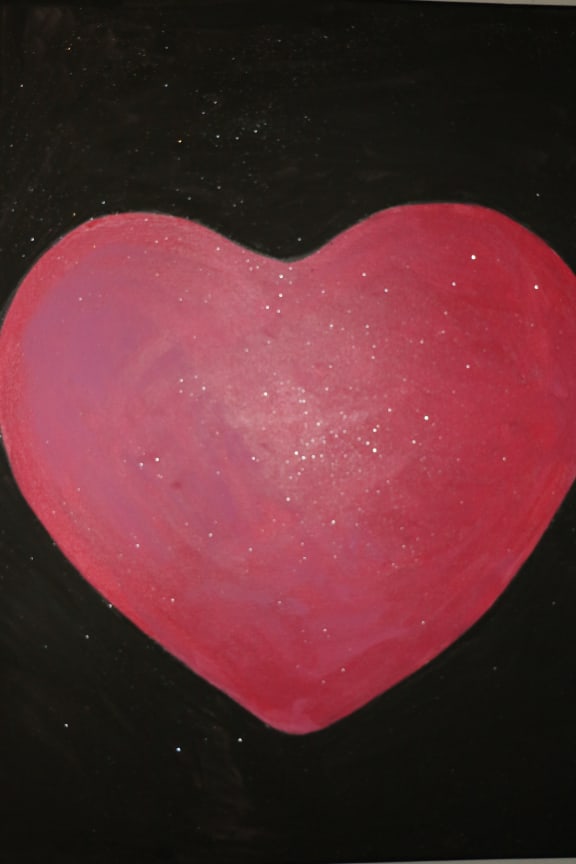
Heart painting by Mehwish Photo: RNZ / Lynda Chanwai-Earle
"There's a section on mental health awareness as well. I did struggle a lot when I came out of my father's house and from Shakti. I attempted suicide a couple of times and I've been trying to help myself through that. When you feel something like that you need to reach out. Don't be afraid to ask for help."
Mehwish never thought her life would turn out the way it has, but she has no regrets.
"We are building our own life. Every step that we take forward may pull us two steps back but there is progress. I am proud of my life now."
For Mehwish, her 'happy place' is when she paints. Her small apartment is filled with her joyous and child-like paintings. Characters like Winnie the Pooh populate every wall.
Laughing, she says she doesn't care that people tell her the colours don't match. The paintings are part of her self-expression, her 'voice'; something she's been reclaiming every day since she broke free from abuse.
For more information about Break Free go to www.shakti.org.nz.
If you or anyone you know is suffering from depression you can find help on the Depression helpline: 0800 111 757 (available 24/7). If it is an emergency and you feel like you or someone else is at risk, call 111.
